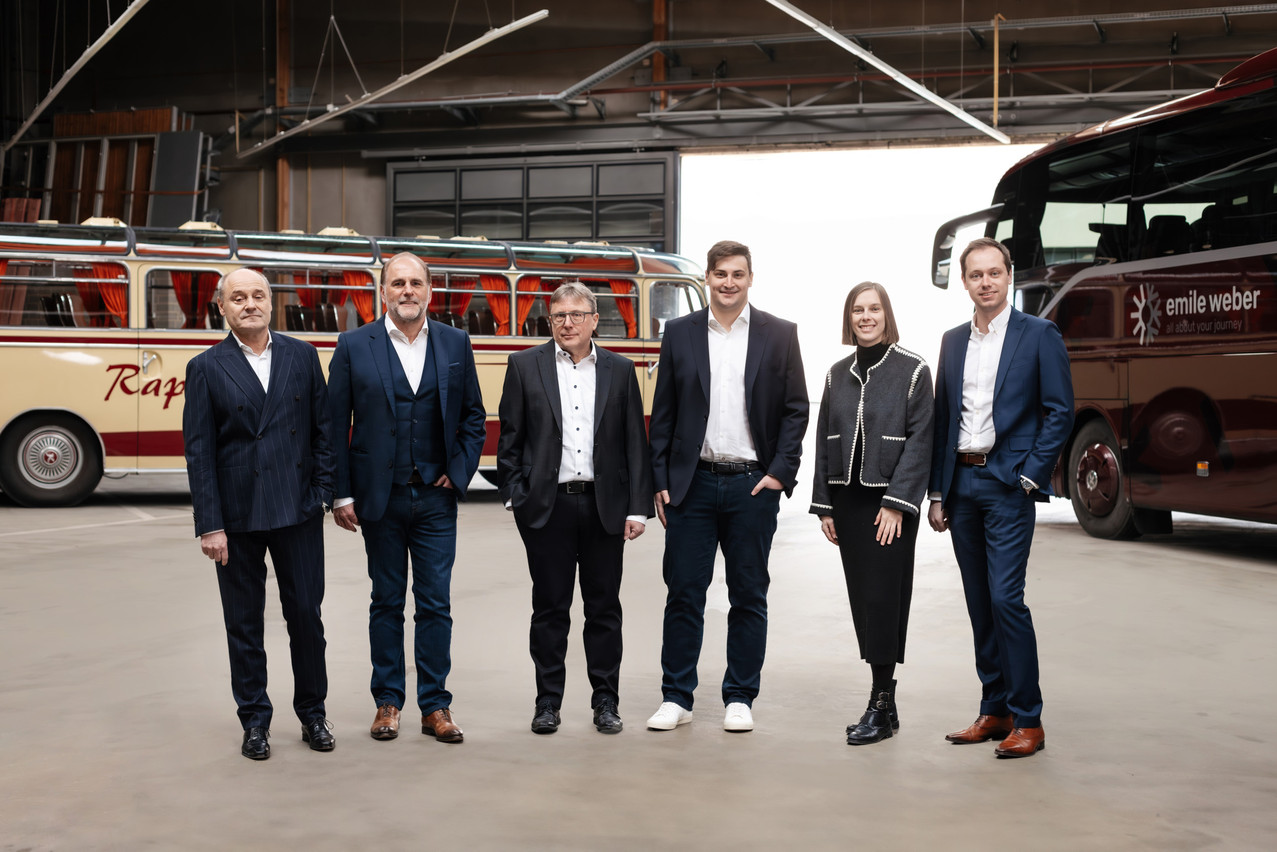The history of the Emile Weber company is a long road that never seems to end. The company, founded in 1875 by Nikolas Weber, has evolved considerably, advocating innovation but never forgetting its history. One hundred and fifty years ago, the company operated a horse-drawn carriage linking the capital to the Luxembourg Moselle. In 1946, the company put its first bus into service and, very quickly, made the choice to diversify, opening its first travel agency in 1972 in the capital, then founding the Union luxembourgeoise du tourisme in 1999.
In the years that followed, the company continued to diversify: it bought Benelux Taxi to create Web Taxi in 2012. In 2021, it launched Webcamper to offer motorhome hire and sales. A winning strategy that also explains the robustness and longevity of the company, based in Canach for over a century, and which has enabled it to establish itself as a leader in mobility on all fronts. Emile Weber is also a benchmark in the public sector. Its buses transport thousands of pupils to school.
Today, Emile Weber is active in a number of different fields: public and private transport, taxi services, the hire of various vehicles without drivers (camping-cars, vans, delivery vans, etc.) and tourism, with the company’s own agencies.) and tourism, with travel agencies and tour operators.
The new generation at the helm--Emile Weber Jr, Philippe Heinisch and Catherine Havé--face a major challenge: to combine tradition and innovation to take the family business even further. In 2023, its brand identity has been redesigned, with a new logo and a more modern image to set the tone for the group’s new ambitions. The previous generation remains mobilised to support the new one, and give shape to “an evolution rather than a revolution.”
On the road to the future
To maintain the leading status of Emile Weber, which employs around 2,000 people, the new management team must keep a close eye on its environment, in order to monitor changes and trends. This is particularly the case for tourism, for example, a sector that is linked to the economic climate and on which any crises can have a major impact. Demographics and urban planning are also areas to watch out for, with cities expanding over time, and new places to serve. Or the labour market, where habits are changing...
But one of the major challenges for the company--and for society as a whole--is sustainability. The company therefore launched its “EmpoweringMobility” programme in 2008, an innovation programme that promotes sustainable mobility concepts, including the introduction of electric vehicles. For Emile Weber, there is no doubt: the future of mobility will be green.
The company has modernised its fleet with a growing number of electric or low-emission vehicles. Today, its fleet includes more than 400 electric vehicles. This has presented the company with a number of challenges that it has been able to overcome, particularly on the technological front, with the introduction of a charge management system to manage vehicle charge cycles, but also with the creation of new charging infrastructures and the management of parking spaces. To meet these challenges, Emile Weber has launched a vast digitisation project. The introduction of these systems will continue to develop.
If the mobility of the future is to be green, it must also be innovative. And Emile Weber has understood this. As a forerunner, the group has already laid the foundations for this transformation, with one ambition: to remain the country’s most popular mobility company. For example, in June 2024, the group announced an investment in the Swiss startup Twiliner, which is developing innovative bus seats, the first of their kind to be approved in Europe. Earlier this year, the ministry of mobility and works issued the first test authorisation for three .
This article was originally published in .
